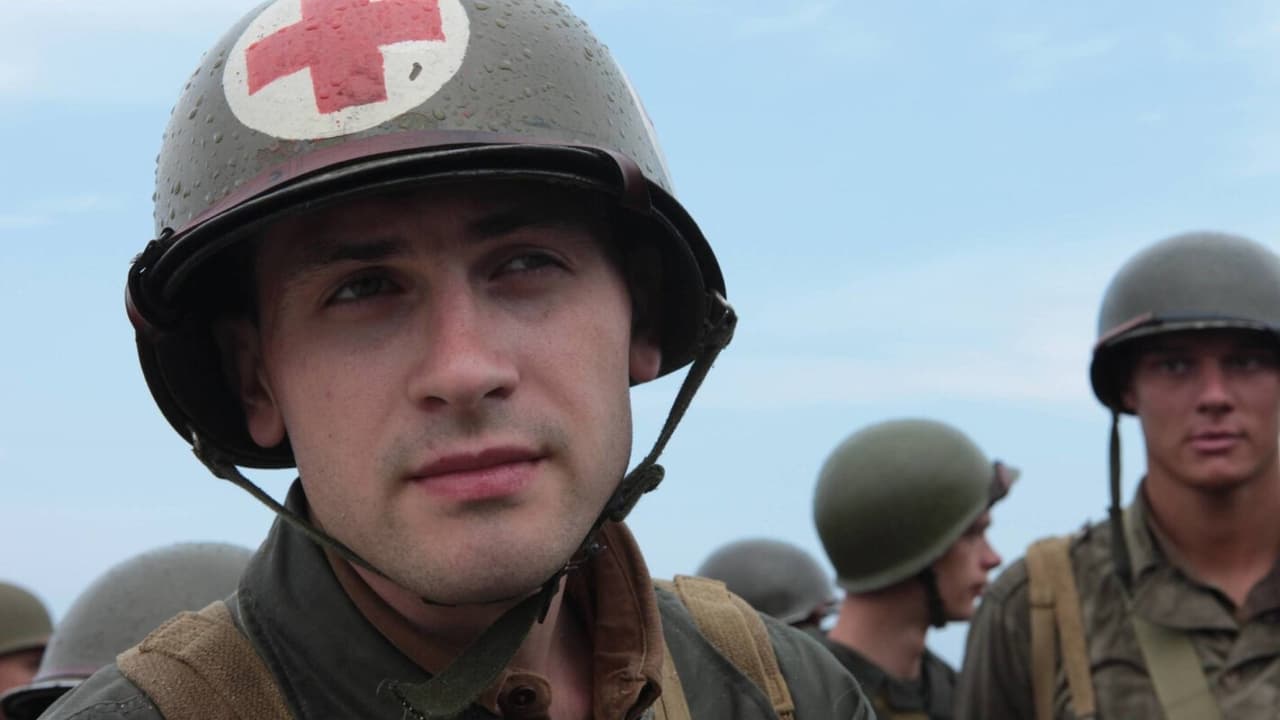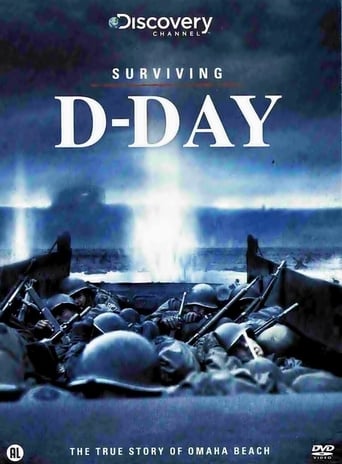



Admirable film.
Pretty good movie overall. First half was nothing special but it got better as it went along.
View MoreA movie that not only functions as a solid scarefest but a razor-sharp satire.
View MoreMostly, the movie is committed to the value of a good time.
View MoreWell, the truth is I don't know how familiar this story of the American landings on Omaha Beach is. It all happened in 1944, sixty years ago. Most of the participants are gone, and I don't sense much interest in history in younger people. Fewer than half of our high school students can place the American Civil War in its correct half century. Almost 20 percent of 1,200 respondents to a national telephone survey do not know who our enemy was in World War II. That means almost one out of five will be surprised to find that we landed on the shore of Nazi-occupied France on D-Day.This documentary is highly focused on Omaha Beach. The other beaches are barely mentioned. And there isn't much glamor attached to the parachute landings or the Rangers' assault on Point du Hoc. There are a handful of talking heads -- not too many -- and the chief figure we follow is Hal Baumgarten, a Jewish private from the Bronx who painted a large yellow Mogen David on the back of his field jacket in a defiant gesture. He may not have lost all of that starch on the beach, although he's become self contained and objective after having been wounded five times.There is some newsreel footage -- again, not too much. Most of the time is taken up with reenactments. The production values are relatively high.The film is to be admired for its honesty. It gives credit where it's due -- both to Rommel and to General Cota of the 29th Division -- but it's honest about Allied weaknesses as well. Hundreds of American paratroopers drowned in the fields flooded by Rommel because of the design of their harnesses, which took thirty seconds or more to get out of. The British design involved just one quick click, like a car's safety belt. The German machine gun designated MG-42 is referred to and described more than once. It was an awesome weapon. Our use of dummy exploding parachutists is described too, although it's not mentioned that the Germans used similar decoys in the Mediterranean years earlier. In the course of the battle to take the beaches, the Germans lost 4,000 men. The innocent French civilians suffered 3,000 casualties because of errors in Allied bombing. "Swimming tanks" failed to swim in rough seas, only having been tested on tank-friendly lakes and harbors. There's no point in going on with this because the landings at Omaha Beach are more simply described as a mess that was only solved by luck and pluck. I do have to say, though, that the director has succumbed to the faddish use of instant cutting and wobbling, hand-held cameras. It's as if the film were a television commercial for some kind of children's toy. If they keep this up I'm going to surrender and go back to coffee-table books by Dorothea Lange and Walker Evans. The director has even -- yuk -- used the fiendish tactic of strapping the camera to the actor's chest. The result is a gargantuan close up of somebody's face, its features all distorted, and a background that jerks spastically as the actor moves. Please -- no more. And while I'm at it, let's have no more girls named Dakota either.
View More